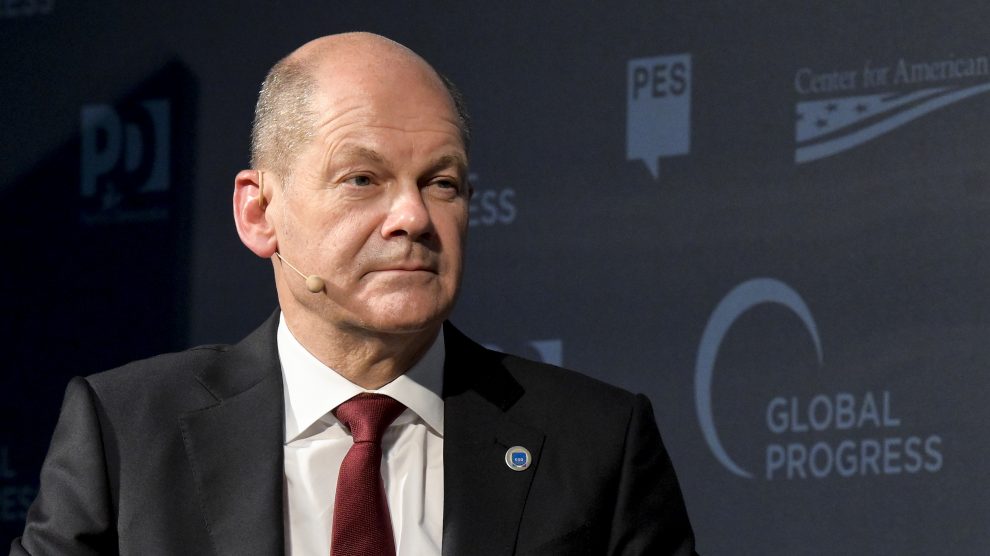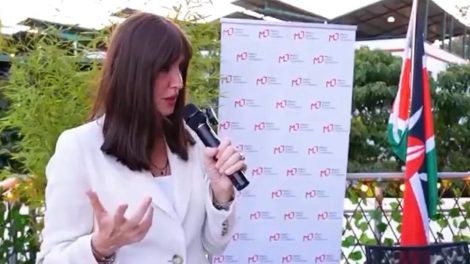Olaf Scholz has been German Chancellor for a few days, but he’s already embarked on a European tour charged with significance. First he touched down in Paris to meet President Emmanuel Macron and underscore the importance of Franco-German relations. Then he travelled to Brussels to burnish his European credentials, which will be at centre stage this coming Thursday, December 16, during the European Council summit.
That occasion might mark Mr Scholz’s first encounter with Prime Minister Mario Draghi in his capacity as Chancellor. The Italian called him on December 9 to congratulate him and say that they’d meet “in the coming days”. And that encounter might yield a trove of insights into the near future of the Italo-German relationship, which could contribute to driving significant change in the coming years.
Very recently, Italy struck a comprehensive collaboration agreement with France, known as the Quirinal Treaty, that’s essentially modelled after the earlier Franco-German version (the Elysee Treaty) that acted as the cornerstone for the powerful entente between the two nations. But while Paris and Rome tied the knot, many officials in Italy were already speaking of a similar deal with Berlin to complete what could well be the EU’s new power triangle.
At the present juncture, the brand-new German government could see significantly more eye to eye with its Italian counterpart on a range of topics (explored below) compared to former Chancellor Angela Merkel’s Germany. And it certainly doesn’t hurt that Italy and Germany already enjoy robust economic ties.
Berlin is Rome’s biggest commercial partner (while Rome is Berlin’s seventh) and bilateral commercial interchange in 2020 was worth over €116 billion in 2020, according to the Italo-German Chamber of Commerce, a figure 8% smaller than 2019, which can nonetheless be chalked up to the pandemic. Key German industries – such as automotive – depend on Italian ones to operate, and vice versa. Can a heightened political understanding be built on such foundations?
Germany and Italy: the main shared dossiers
- Fiscal austerity is perhaps at the top of the agenda. Under Ms Merkel, Germany had generally advocated for austere measures, opposing the likes of Italy, which suffered heavily under the existing European rules. Mr Draghi already signalled he intends to reform them, and so has Mr Macron, whose country will assume the rotating European presidency in January. Crucially, Mr Scholz’s government – represented by Finance Minister Christian Lindner, who historically held very hawkish positions on the matter – also seems more prone to consider other options (especially when it comes to green tech and digitalisation) once the pandemic-induced suspension of the rules comes to an end.
- Russia is in the EU’s limelight for its increasingly aggressive stance on the Ukrainian border. It’s also the bloc’s single most important natural gas supplier (over 40%) and is seeking to strengthen its link with Germany through the approval of the Nord Stream 2 gas duct. Berlin sorely needs the gas for its decarbonisation process, and so do several countries in Europe. Still, the new coalition’s Foreign Minister Annalena Baerbock seems to be less wary of confrontational tones towards the Kremlin than her Merkelian predecessor. A balancing act between energy security and European assertiveness, a matter Mr Draghi’s Italy is also invested in.
- China will be another crucial matter. Being Germany’s first commercial partner, Berlin is stuck between economic ties and an increasingly wary EU. The green and digital transitions, which are heavily dependent on Chinese imports, impact the entirety of Europe’s purported “strategic autonomy”. How Germany will be moving on that issue will heavily condition the European stance. On its part, Italy is no stranger to Chinese business, but like most of the bloc, it’s also drifting away from Beijing – geopolitically speaking, that is.
- All of the above also translates into the EU’s closeness to the US and standing within NATO. Washington and Berlin enjoy strong military links, what with several thousand US troops stationed in Germany. Similarly, Italy is generally aligned with Uncle Sam. Thus, Rome and Berlin may prove an effective counterbalance to Paris’ idea of “strategic autonomy” – which time and again has veered off course into a push to build a less US-dependent EU (consider the post-AUKUS feather-ruffling). Mr Draghi believes that a stronger EU military force would account for strengthening the European leg of NATO, and Ms Baerbock has displayed more warmth towards the US.
- The EU’s energy mix will also come into play. Like Germany, Italy is also a central gas hub. The two countries are expected to collaborate on everything from procurement to infrastructure, keeping an eye on the gradual shift from natural gas to green hydrogen. The two countries are bound to gas also because of their rejection of nuclear technology, while France upholds it as its primary source.





